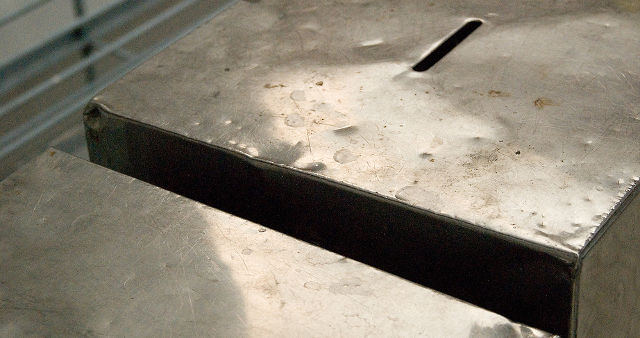A reminder from the Isle of Wight council of details for Hampshire PCC Election. Ed
Voters are being reminded to make sure they are ready to take part in the Police and Crime Commissioner elections on Thursday 5 May. There is a Police and Crime Commissioner election for the Hampshire and Isle of Wight.
Chris Mathews, electoral registration officer for the Isle of Wight Council said:
“With the elections fast approaching, we want to make sure that everyone knows how to cast their vote with confidence on 5 May.
“Anyone looking for more information will likely find the answer to their questions at www.aboutmyvote.co.uk and they can get in touch with the team here at Isle of Wight Council if they have any further queries.”
Ben Brook, Head of the Electoral Commission, English Regions, said:
“There are elections taking place all over England on 5 May, so wherever people live it’s important that everybody knows how to take part and have their say on issues in their local area.
“A lot of people don’t know what to expect on polling day, especially if they haven’t voted before, but with so much information available online and through your local Electoral Services team, we hope everyone will be able to feel confident about casting their vote in May.”
Here’s a rundown of things you need to know before polling day:
Make sure you register in time
If you need to check that you are on the Register of Electors then please call the Isle of Wight Council on (01983) 823380. You will need to quote your full name and postal address.
If you are not registered, please register online
Last date to register as an elector is 18 April.
Last date to send your application form to vote by post – 19 April by 5.00pm.
Last date for new proxy applications – 26 April by 5.00pm.
Voting In Person
- Polling stations will be open from 7am to 10pm on Thursday 5 May. You had to have applied to register to vote by midnight on 18 April in order to be able to vote on 5 May.
- Your poll card will have been sent to the address where you are registered. It will say where your polling station is. You can only vote at the polling station that is stated on your own poll card.
- Plan what time you will be able to cast your vote at the polling station, leaving plenty of time before the 10pm deadline.
- If you are in a queue at your polling station at 10pm you will still be able to vote.
- If you arrive at the polling station after 10pm then the poll will be closed and you will have missed your chance to take part.
Postal voting
- If you have a postal vote, make sure it is returned by 10pm on Thursday 5 May.
- If you have not had time to post it before polling day, then you can take it to the polling station on polling day and hand it in. Your poll card tells you where your polling station is. Postal votes that arrive after 10pm on May 5 will not be counted.
Proxy voting
- If you’ve appointed a proxy, then they need to make sure they are able to vote at the correct polling station on your behalf.
- If you are suddenly unable to vote in person, because you have a medical emergency which prevents you from attending on polling day, or your occupation, service or employment means that you cannot go to the polling station in person, and you only become aware of that fact after the deadline, then you may be entitled to appoint an emergency proxy.
- You can apply for an emergency proxy up until 5pm on polling day. You should contact your local electoral registration office directly to ask about this.
What you need to take with you
- Just yourself!
- You can take your poll card with you to show the polling station staff when you arrive. They will still ask for you to confirm your name and address. If you don’t have it with you, just tell the polling station staff your name and your address and they can check whether you’re on the electoral register.
How to fill out your ballot paper
- The staff at the polling station will give you a ballot paper listing the candidates you can vote for. You may be given more than one ballot paper if there is more than one election taking place in your local area on the same day.
- Staff are on hand at the polling station to provide advice on the voting process.
- If you are disabled, you can ask the Presiding Officer for help and they can mark the ballot paper for you. You can also ask someone else to help you (e.g. a support worker, as long as they are either a relative or an eligible elector).
- If you have a visual impairment, you can ask to see a large print ballot paper or you can ask for a special voting device that allows you to vote on your own in secret.
- Take your ballot paper into a polling booth so that no one can see how you vote. Read the ballot paper carefully, it will tell you how to cast your vote. Do not write anything else on the paper or your vote may not be counted.
- Mark your ballot paper according to the instructions. A pencil will be provided for you to do this, but you may use your own pen if you prefer.
- If you make a mistake on your ballot paper, don’t worry, So long as you haven’t already put it in the ballot box just let the polling station staff know and they can issue you with a replacement ballot paper.
- Fold your completed ballot paper in half and pop it in the ballot box – and that’s it done!
Image: greenwichphotography under a CC BY 2.0 license





